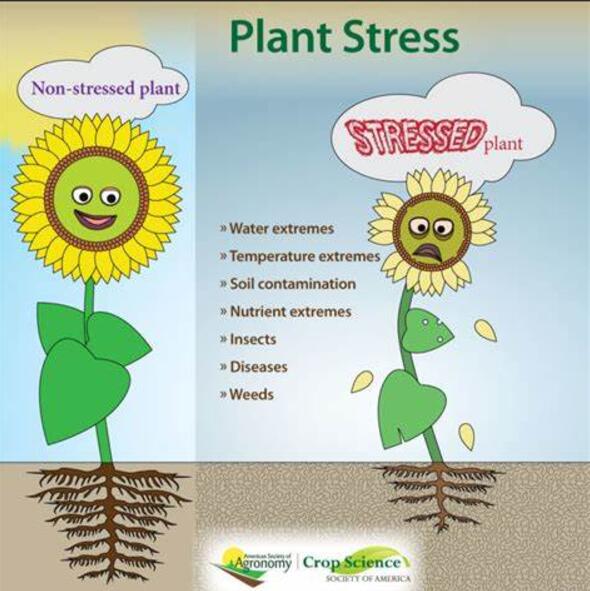调节热应激小麦源-汇相互作用和籽粒产量形成的生理机制
IF 6.8
Q1 PLANT SCIENCES
引用次数: 0
摘要
气候变化和大气温度升高对全球小麦生产率和粮食安全构成重大挑战。不可预测的天气模式和频繁的热浪,尤其是在小麦作物的生育期和籽粒灌浆期,大大降低了谷物的产量和质量。本综述研究了当前有关热强度和热持续时间对这些敏感生长期谷物产量成分影响的文献。利用已发表的文献,我们对小麦作物不同生长阶段不同热强度和热持续时间造成的谷物产量损失进行了量化。数据表明,小麦的粒数损失与热强度和时间(开花前 0 至 15 天)本身的相关性很低,但与高温日数的反应很强(r²=0.45),温度高于最适温度(16-22 °C)的高温日每增加一天,小麦的粒数损失就增加 0.2%。此外,在敏感期(自花期起 -5 天至 15 天),平均温度比最适温度每升高 1 °C,单粒重量就会减少约 2.1%。本综述还讨论了源-汇调节的变化,特别是小麦在末期高温下的碳同化、储存、运输和糖代谢与谷物产量损失的关系。综述还指出了高温小麦相互作用方面的研究空白,讨论了在未来高温环境下维持小麦生产的潜在机会(如育种和管理)。本文章由计算机程序翻译,如有差异,请以英文原文为准。
Physiological mechanisms regulating source-sink interactions and grain yield formation in heat-stressed wheat
Climate change and increasing atmospheric temperatures significantly challenge global wheat productivity and food security. Unpredictable weather patterns and frequent heatwaves, particularly during reproductive and grain-filling phases of wheat crops significantly reduce grain yield and quality. This review examines current literature on the impact of heat intensity and duration on grain yield components during these sensitive growth phases. Using the published literature, we quantified grain yield losses in response to varying heat intensity and duration during different developmental phases of wheat crops. The data suggest that grain number loss in wheat is poorly correlated with heat intensity and timing (0 to 15 days before anthesis) alone but it strongly responds (r²=0.45) to the number of hot days, with a 0.2 % loss of grains for each additional hot day with a temperature above optimum (16–22 °C). Further, for every 1 °C increase in mean temperature above optimum during sensitive phases (from -5 to 15 days since anthesis), individual grain weight decreases by approximately 2.1 %. This review also discusses how changes in source-sink regulation, particularly carbon assimilation, storage, transport and sugar metabolism in wheat under terminal heat are associated with grain yield losses. It also identifies the research gaps in heat wheat interaction, discussing potential opportunities (e.g., breeding and management) for sustaining wheat production under future hot environments.
求助全文
通过发布文献求助,成功后即可免费获取论文全文。
去求助
来源期刊

Plant Stress
PLANT SCIENCES-
CiteScore
5.20
自引率
8.00%
发文量
76
审稿时长
63 days
期刊介绍:
The journal Plant Stress deals with plant (or other photoautotrophs, such as algae, cyanobacteria and lichens) responses to abiotic and biotic stress factors that can result in limited growth and productivity. Such responses can be analyzed and described at a physiological, biochemical and molecular level. Experimental approaches/technologies aiming to improve growth and productivity with a potential for downstream validation under stress conditions will also be considered. Both fundamental and applied research manuscripts are welcome, provided that clear mechanistic hypotheses are made and descriptive approaches are avoided. In addition, high-quality review articles will also be considered, provided they follow a critical approach and stimulate thought for future research avenues.
Plant Stress welcomes high-quality manuscripts related (but not limited) to interactions between plants and:
Lack of water (drought) and excess (flooding),
Salinity stress,
Elevated temperature and/or low temperature (chilling and freezing),
Hypoxia and/or anoxia,
Mineral nutrient excess and/or deficiency,
Heavy metals and/or metalloids,
Plant priming (chemical, biological, physiological, nanomaterial, biostimulant) approaches for improved stress protection,
Viral, phytoplasma, bacterial and fungal plant-pathogen interactions.
The journal welcomes basic and applied research articles, as well as review articles and short communications. All submitted manuscripts will be subject to a thorough peer-reviewing process.
 求助内容:
求助内容: 应助结果提醒方式:
应助结果提醒方式:


